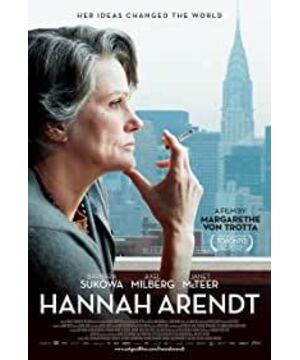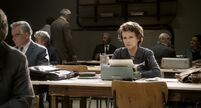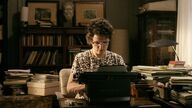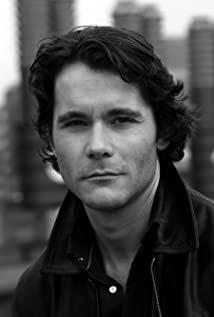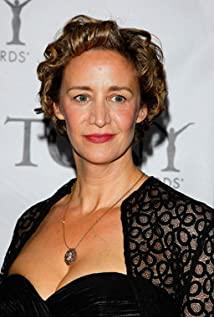A year ago, there was a parent (my friend) of a classmate who wanted to be admitted to Peking University early, and wanted me to do a mock interview for her son. Suppose I was the examiner. I would like to engage in math competitions with this classmate who loves these things. Kan. What impressed me was that a classmate told me on camera that he said he liked Hannah Arendt, but he had only heard some of her opinions and had not read her book carefully. Later, although the child missed by 1 point and did not enter the philosophy of Peking University, he entered the mathematics department of Fudan with a high score. I am still very pleased that philosophy and mathematics are the most important basic subjects of liberal arts and sciences. In fact, the core is the same - revealing the original face of things. I said, if you like Arendt, you have to read several of her masterpieces. I kept saying that when he got the admission letter, he would send a copy of the origin of totali~~~~, but now he broke his promise. ashamed.
Going a little further - when a friend recommended this biographical film to me, a lot of scattered memories and thoughts came back, the university library, the faces of certain teachers, and the one who didn't have a unified voice on campus , everything allows for a great atmosphere of debate. It's a pity that I didn't read Totali~~~~ in its entirety, and the new version I bought at the beginning of the year has not been opened yet.
The overall story line of the film is relatively simple - after Arendt came to teach in the United States from Germany, he was asked by the New Yorker to report on the trial of Eichmann, an officer of the Nazi era, in Jerusalem. Her report then sparked widespread controversy, because she didn't seem to scold the officer for his heinousness, but instead appeared to be defending him? But she always insists on one point: I see him as a single case. Don't raise everything to "No ism". And, under the framework of a big mistake, every part of the machine has become a real "mechanical part", without initiative, without thinking. Finally, the speech in the university class is really recommended to watch it several times. After reading it, I immediately went back and did the full text dictation (of course, after listening to it, I found that the full text was available on the Internet, but after checking it, I found that the correct rate could be 95%)
Here are some impressive points:
1. The meaning of the media
When Arendt appeared in the film, she had already published the book Totali~~~, which attracted widespread attention in the academic and intellectual circles. But one editor in charge still ignored her, saying that philosophers don't beat deadlines. Maybe it has something to do with me being a practitioner in this industry. This film once again proves that the overall orientation of the media is shallow. The KPI of the media is to meet or beat the deadline, so in the face of such a complicated trial, Arendt must insist on reading all the files, and smoke one by one. While he is ripping off the cocoon, he is also reviewing his choices along the way. . Recently, I have deeply realized that, even in very prestigious media, everyone's operation is always the same in the end - there is always something similar to a conclusion to set the tone, and then look for evidence. What if it is an open-ended question itself? Moreover, the operation of the media is in line with the inertia of the human brain, which is to categorize. The essence of categorization is to simplify and relate, but the more complex social issues, the more difficult the two are.
However, the era of the film, and the New Yorker itself, was already crème de la crème. The editor-in-chief's tolerance, tolerance for controversy, and freedom of speech can give Arendt the green light (although, it is also the beginning of a huge controversy). There is one sentence in the lines that also impressed me: really good articles, language and grammar are very secondary (because Arendt is German, her English is not outstanding enough), but thoughts, thoughts, thoughts. Only when thinking is absent, we have to rely on rhetoric and sentence patterns to build it up, and behind it lies the ruins of thought. And this is just the year - I talked to several friends two days ago about why KOLs can also be editors-in-chief? Do we humans progress at all? In the age of new media, revisit the book Amusing Ourselves to Death.
2. The meaning of university
At that time, discussions in college classes were seminar, not students giving presentations. It was good that the teacher commented on the meaning one by one. In the advanced German class, Arendt used the most sophisticated case study to brainstorm with students. In fact, language is the most intuitive but also the most superficial manifestation of culture. What are people who don’t know the language thinking, and what is the starting point for thinking about the problem, then it’s better not to learn this language, and it’s really better to give way to AI .
There is a sentence in the film, the wind of thought is not knowledge, but the ability to tell right or wrong, beautiful from ugly. I would say that it is not bad to be able to teach knowledge in universities now, everyone is watching skills/techniques , which is the skill. In fact, ideas are greater than knowledge, and knowledge is greater than skills. For the first two, it is necessary to be like Arendt, even if he is successful, he can always maintain a clear mentality for any research topic, and must start from the most primitive dossier. This is also the orthodox education I have received since the age of 18: anything, unless it is constrained by practical conditions, must read the original text, or the closest translation to the original text (for example, I don't know Hebrew and I can only read it English version). Never read interpretations, second-hand, third-hand and n-hand thoughts, and don't believe in media reports. Mass Media is for Mass, but college students - your consciousness has to be elite.
How to say, in my eyes, more than 95% of domestic universities are cultivating technicians and white-collar technicians in a mismatch. In fact, our country really needs good technicians, but universities are different from technical schools. You should cultivate thinkers. Even after graduation, most people still work as ordinary employees, but your thinking is different. You are not Screw, you know how to think. The technicians should be handed over to specialized schools. The most feared thing is the misallocation of resources. But what is the incentive mechanism of our university, what kind of people are the teachers, and the KPI of the school is not employment, further education, or rushing into the world. If there is no flow of ideas, I think this day will be very far away.
3. The meaning of being human
That's where the breath of air comes in. We are accustomed to excuse ourselves and feel that doing evil is far away from ourselves, but in fact, it may be hidden in your inaction. You feel that you are very small and cannot escape the shackles of the big environment; but isn't the big environment exactly what each of us is composed of? Mancor Olson's Logic of Collective action is one of the few Nobel Prize economics works that I can understand. It actually talks about similar issues from an economics perspective. Everyone makes decisions based on their own narrow interests, and as a result, the overall utility of the whole society is lowered. The evil of mediocrity is the decision of each of us.
It's not easy to get used to asking "why"; it's even harder to ask "why not". But it is just thinking that brings you one step closer to the real Socrates, the "man" in Aristotle's mouth. (This is also a sentence mentioned in Arendt's play) I also like a few sporadic thinking points: Are passion and reason always opposites? If we want to think about how high we can reach, we can’t stop at the matter of fact, but once it rises too much, it’s easy to fall into the vicious circle of “onlyism” theory? (Arendt also said in the film: no ism)
In the end, I still copied down some of my favorite lines to reflect on myself three times a day.
The greatest evil in the world is the evil committed by nobodies, evil committed by men without motive, without convictions, without wicked hearts or demonic wills, by human beings who refuse to be persons. And it is this phenomenon that I have called the “ banality of evil”.
I wrote no defense of Eichmann, but I did try to reconcile the shocking mediocrity of the man with his staggering deeds. Trying to understand is not the same as forgiveness. I see it as my responsibility to understand, it is the responsibility of anyone who dares to put pen to paper on the subject.
Since Socrates and Plato, we usually call 'thinking' to be engaged in that silent dialogue between me and myself. In refusing to be a person, Eichmann utterly surrendered that single most defining human quality: that of being able to think. And consequently, he was no longer capable of making moral judgments. This inability to think creates the possibility for many ordinary men to commit evil deeds on a gigantic scale, the like of which one had never seen before.
The manifestation of the wind of thought is not knowledge, but the ability to tell right or wrong, beautiful from ugly. And I hope that thinking gives people the strength to prevent catastrophes in these rare moments, when the chips are down.
View more about Hannah Arendt reviews


